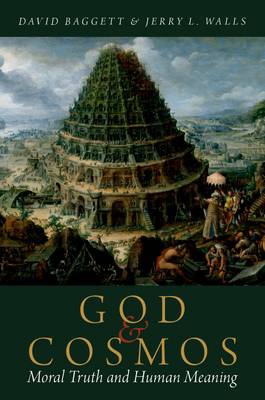
- Afhalen na 1 uur in een winkel met voorraad
- Gratis thuislevering in België vanaf € 30
- Ruim aanbod met 7 miljoen producten
- Afhalen na 1 uur in een winkel met voorraad
- Gratis thuislevering in België vanaf € 30
- Ruim aanbod met 7 miljoen producten
Zoeken
€ 93,45
+ 186 punten
Omschrijving
Naturalistic ethics is the reigning paradigm among contemporary ethicists; in God and Cosmos, David Baggett and Jerry L. Walls argue that this approach is seriously flawed. This book canvasses a broad array of secular and naturalistic ethical theories in an effort to test their adequacy in accounting for moral duties, intrinsic human value, moral knowledge, prospects for radical moral transformation, and the rationality of morality. In each case, the authors argue, although various secular accounts provide real insights and indeed share common ground with theistic ethics, the resources of classical theism and orthodox Christianity provide the better explanation of the moral realities under consideration. Among such realities is the fundamental insight behind the problem of evil, namely, that the world is not as it should be. Baggett and Walls argue that God and the world, taken together, exhibit superior explanatory scope and power for morality classically construed, without the need to water down the categories of morality, the import of human value, the prescriptive strength of moral obligations, or the deliverances of the logic, language, and phenomenology of moral experience. This book thus provides a cogent moral argument for God's existence, one that is abductive, teleological, and cumulative.
Specificaties
Betrokkenen
- Auteur(s):
- Uitgeverij:
Inhoud
- Aantal bladzijden:
- 344
- Taal:
- Engels
Eigenschappen
- Productcode (EAN):
- 9780199931217
- Verschijningsdatum:
- 1/03/2016
- Uitvoering:
- Paperback
- Formaat:
- Trade paperback (VS)
- Afmetingen:
- 155 mm x 234 mm
- Gewicht:
- 453 g

Alleen bij Standaard Boekhandel
+ 186 punten op je klantenkaart van Standaard Boekhandel
Beoordelingen
We publiceren alleen reviews die voldoen aan de voorwaarden voor reviews. Bekijk onze voorwaarden voor reviews.











